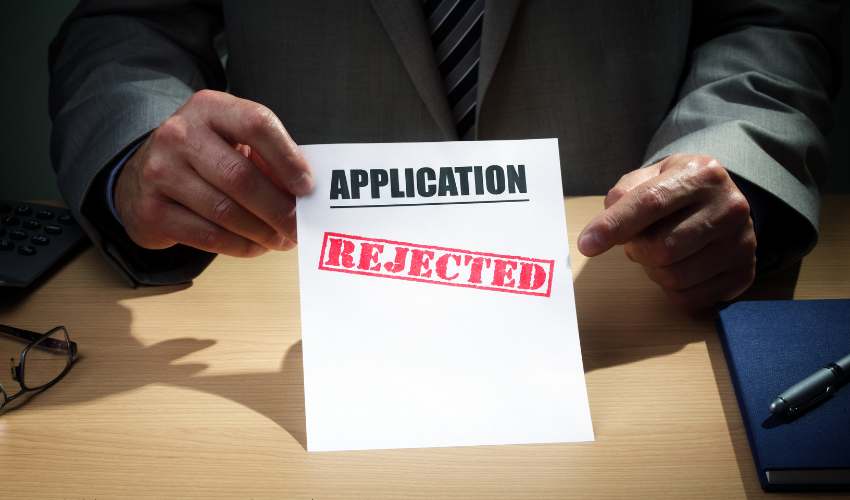If My Visa Is Rejected Can I Apply Again?
One of the most common questions applicants ask after receiving a refusal letter is:
If my visa is rejected can I apply again?
The short answer is yes — you can apply again after a Canada visa refusal.
However, reapplying without addressing the issues that led to the refusal will likely result in another rejection. Before submitting a new application, you must carefully review the refusal letter issued by IRCC (Immigration, Refugees and Citizenship Canada).
On the second page of most refusal letters, IRCC states:
“Your new application may be refused unless it is supported by new or different information that would satisfy the officer that you meet all application requirements.”
This means submitting the same documents and explanations again will not change the decision.
If your situation has improved or you can provide stronger documentation, then reapplying may significantly increase your chances of approval.
Understanding Canada Visa Refusal
If you are asking, “If my visa is rejected, can I apply again?”, the first step is understanding why your application was refused.
What Is a Canada Visa Refusal Letter?
A Canada refusal letter explains why the visa officer denied your application. Common reasons include:
Insufficient financial proof
Weak ties to your home country
Incomplete or incorrect documentation
Unclear purpose of travel
Limited travel history
Security or admissibility concerns
This letter is the most important document for preparing a stronger reapplication.
Visa Refusal vs. Visa Rejection: What’s the Difference?
Many applicants confuse these two terms.
Visa Refusal usually happens when:
You fail to prove financial sufficiency
You cannot demonstrate strong ties to your home country
The officer doubts you will leave Canada after your stay
Visa Rejection may occur due to:
Incorrect visa category
Failure to pay application fees
Submitting an incomplete application
If you are wondering, “If my visa is rejected can I apply again?”, the answer depends on correcting these issues properly before reapplying.
Common Reasons for Canada Visa Refusal
Understanding refusal reasons is essential before applying again.
1. Financial Insufficiency
You must prove you can cover:
Travel costs
Living expenses
Accommodation
2. Weak Home Country Ties
You must demonstrate strong connections such as:
Employment
Business ownership
Property
Family obligations
3. Purpose of Travel Not Clear
Your travel plan must be detailed and logical.
4. Limited Travel History
A weak international travel record can affect credibility.
5. Incomplete Documentation
Missing documents are one of the most common refusal reasons.
If your visa was refused for any of these reasons, simply reapplying without improvement will not help.
If My Visa Is Rejected Can I Apply Again Without Changes?
Technically yes.
Strategically no.
Submitting the same application again:
Wastes money
Delays processing
Lowers credibility
You should only reapply if:
Your financial situation improved
You obtained stronger employment proof
You added missing documents
Your personal circumstances changed
Otherwise, your new application may be refused again.
Canada Visa Refusal Rate
The Canada visa refusal rate varies depending on:
Visa type (visitor, study, work)
Applicant’s country of residence
Economic and immigration risk factors
For Canadian visitor visas, refusal rates may range between 20% to 80% depending on the country and year.
These statistics change annually in line with immigration trends.
How to Appeal a Canada Visa Refusal
If you are still asking, “If my visa is rejected can I apply again?”, you also have other options besides reapplying.
1. Request GCMS Notes
These notes reveal the officer’s detailed reasoning.
2. Submit a Reconsideration Letter
You may request the same officer to reassess the decision if:
There was an error
Important documents were overlooked
3. Apply for Judicial Review (Federal Court)
You may challenge the decision in the Federal Court.
Cost of Judicial Review
Federal Court filing fee: $50
Legal representation: $3,000 – $6,000
Processing Times After Refusal
If you reapply, processing time depends on:
Visa category
Country of residence
Application volume
Background checks
Typical timelines:
Reconsideration request: 1–2 months
New application: 1–3 months or more
Federal Court: 2–8 months
What Happens After Biometrics?
After biometrics submission:
Background checks begin
Security screening is completed
Eligibility review is conducted
A final decision is made
Visa issuance after biometrics may take 1–3 months, depending on the case.
What Makes a Strong Reapplication?
If your visa was refused and you are wondering, “If my visa is rejected can I apply again successfully?”, the key is submitting a solid and improved application.
A strong application includes:
Detailed purpose of travel
Clear travel itinerary
Strong financial documentation
Proof of employment or business
Evidence of home country ties
Personalized explanation letter
Addressing every refusal reason directly
Should You Hire a Canadian Immigration Lawyer or RCIC?
A licensed RCIC or immigration lawyer can:
Analyze refusal reasons
Request and interpret GCMS notes
Draft reconsideration letters
Prepare Federal Court applications
Build a stronger reapplication file
Professional support significantly increases your chances of getting a Canada tourist visa after refusal.
Final Thoughts: If My Visa Is Rejected Can I Apply Again?
Yes — you can apply again.
But success depends entirely on how well you address the refusal reasons.
Reapplying without improvement will likely result in another refusal. A carefully prepared, legally structured, and well-documented application significantly increases your approval chances.
If you are unsure about your case, consulting an experienced immigration professional can save you time, money, and frustration.
How Arnika Visa Can Help After Visa Refusal!
Arnika Visa, led by a Regulated Canadian Immigration Consultant (RCIC), specializes in handling refusal cases.
Our services include:
Requesting and reviewing GCMS notes
Identifying weaknesses in the previous application
Preparing reconsideration letters
Filing Federal Court judicial review (if required)
Preparing a stronger new application
Developing a customized travel plan
Creating a financial plan aligned with your stay
Preparing spouse and dependent applications
Ongoing document support and review
Our experience shows that most refusals can be successfully addressed with the right strategy.

FAQs
1. If my visa is rejected can I apply again immediately?
Yes, you can apply again immediately after a refusal. However, reapplying without addressing the refusal reasons will likely result in another rejection. It is strongly recommended to review your refusal letter and improve your documentation before submitting a new application.
2. If my visa is rejected can I apply again with the same documents?
You technically can, but it is not advisable. IRCC clearly states that a new application may be refused unless it includes new or different information. Submitting the same documents again will not change the officer’s decision.
3. How long should I wait before reapplying after a Canada visa refusal?
There is no mandatory waiting period. You may reapply as soon as you are ready with stronger supporting documents. The key factor is not time — it is whether your situation has improved or you can address the refusal concerns properly.
4. Does a previous refusal affect my future visa applications?
Yes, a previous refusal becomes part of your immigration record. Future visa officers can see your past refusal. However, a well-prepared and improved application can still be approved if you resolve the original concerns.
5. What are the most common reasons for Canada visa refusal?
The most common reasons include:
Insufficient financial proof
Weak ties to home country
Unclear purpose of travel
Incomplete documentation
Limited travel history
Understanding these reasons is essential if you are asking, “If my visa is rejected can I apply again successfully?”
6. Should I appeal or reapply after my visa is rejected?
It depends on your situation. If the officer made a legal or procedural error, you may request reconsideration or file for judicial review. If the refusal was due to weak documentation, reapplying with stronger evidence is usually the better option.





I have recently been announced that my visitor visa was refused for the officer wasn’t satisfied I would return home after my visit to Canada.
I heard of appealing for a reconsideration, so I wonder if you could help me change the refusal into an approval.
Appealing visa refusals is our expertise at Arnika Visa. Connect with our RCIC by booking a consultation on our website to explore your options and work toward overturning your refusal.